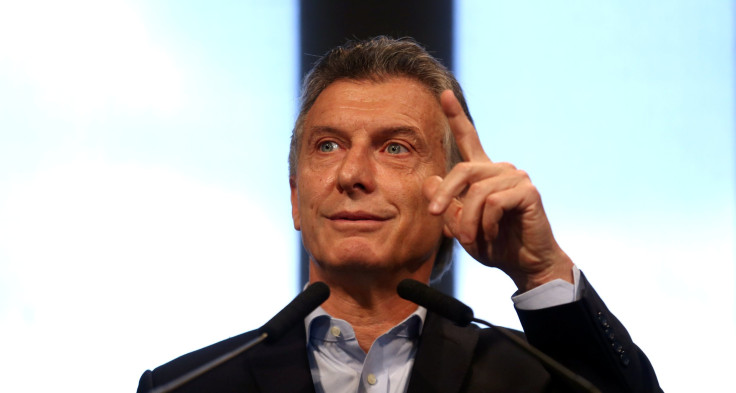Immigration Laws Around The World: Donald Trump Border Wall, Immigration Ban Copied By Argentina

In Argentina, millionaire president Mauricio Macri's war on illegal immigration is being compared to President Donald Trump's promises to build a wall on the U.S.-Mexico border and ban certain immigrants from entering the nation. Macri signed an executive order last month to stop some migrants from entering Argentina. He also wants to deport immigrants with criminal records and build a border wall.
“We cannot continue to allow criminals to keep choosing Argentina as a place to commit offenses,” Macri said during a recent news conference.
Sound familiar? Trump has passed similar policies in his first two weeks in office, including a ban on refugees and travelers from seven Muslim-majority nations. But in Argentina, Macri's center-right government saw firm resistance from his South American neighbors after he passed his immigration order aimed at fighting drug-related crime.
“Peruvian and Paraguayan citizens come here and end up killing each other for control of the drug trade,” said Macri’s security minister Patricia Bullrich. “A lot of Paraguayans, Bolivians and Peruvians get involved as either capitalists or mules, as drivers or as part of the drug trafficking chain.”
Bolivia didn't take kindly to the remarks, the Guardian reported Friday. “We have to reject this kind of stigmatization against our compatriots that coincides with Trump’s xenophobic attitude,” responded Bolivian government minister Carlos Romero.
Bolivia’s indigenous president Evo Morales also slammed the policy. “We can’t be following the example of the north and its policies, building walls to divide us,” he wrote on Twitter, evoking Trump.
Like Trump, Macri's immigration policies have been labeled racist by his critics. About 80 percent of Argentina's population descended from European immigrants, and its immigrants tend to have darker skin. They arrive to work in construction or other low-paying jobs that aren't popular among Argentinian workers. Macri claims immigrants made up roughly 21 percent of Argentina's population in 2014, but Argentina’s Center for Legal and Social Studies put the figure at 5 percent.
“A decree like this scares people,” Arfang Diedhiou, 33, a Senegalese immigrant in Buenos Aires told the New York Times in an article published Saturday about Macri's policies. “It came out just after what Trump did, a coincidence that seems very strange to me.”
Macri isn't the only Argentine lawmaker drawing comparison to Trump. Legislator Alfredo Olmedo of the northern province of Salta, which borders with Bolivia, recently threw his support behind Trump's plan to "Make America Great Again."
“We have to build a wall,” he said. “I agree 100 percent with Trump.”
© Copyright IBTimes 2025. All rights reserved.






















